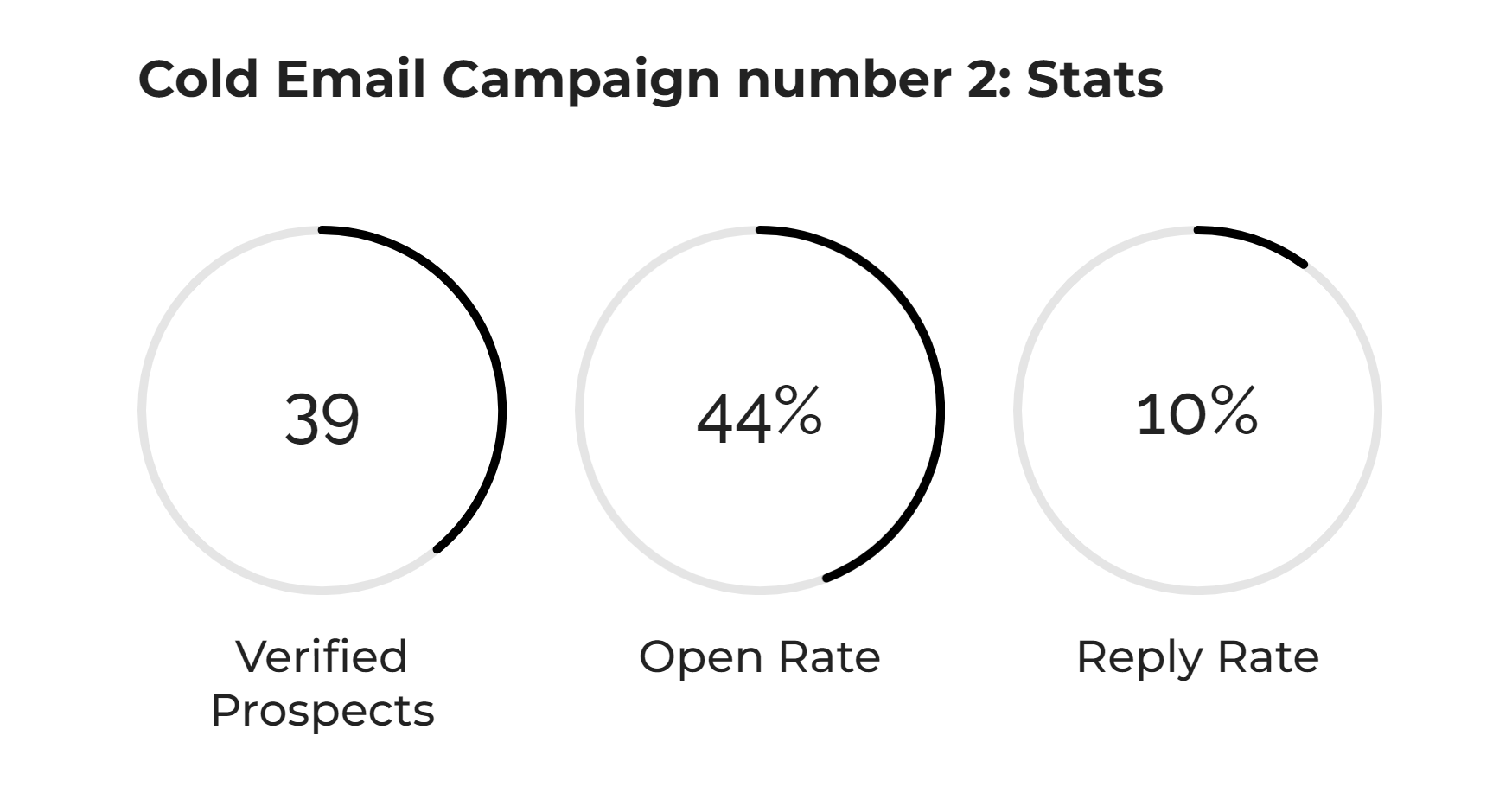As a founder or a sales manager, you might wonder which cold outreach channel would be the best to utilize in 2022.
You know that time equals money.
Therefore, you don’t want to waste precious time and money on an outreach channel that might not yield qualified leads.
In the past cold email outreach was the best way to reach prospects, but thanks to social media, we now have another avenue of outreach to try in order to land the sale.
This article will share some recent stats on both channels and how each performs according to lead gen gurus…
But, we also want you to know that Salesbread has battle-tested both cold email and Linkedin outreach and the stats are quite enlightening.
Here are some of our findings and why we prefer using Linkedin first, and then filter down to cold email and SMS.
(If you are looking for a lead generation company, Salesbread specializes in Linkedin outreach. We guarantee 1 qualified lead per day or 20+ leads per month. Get in touch for a free 15-minute consultation.)
Stats on Linkedin outreach from the web
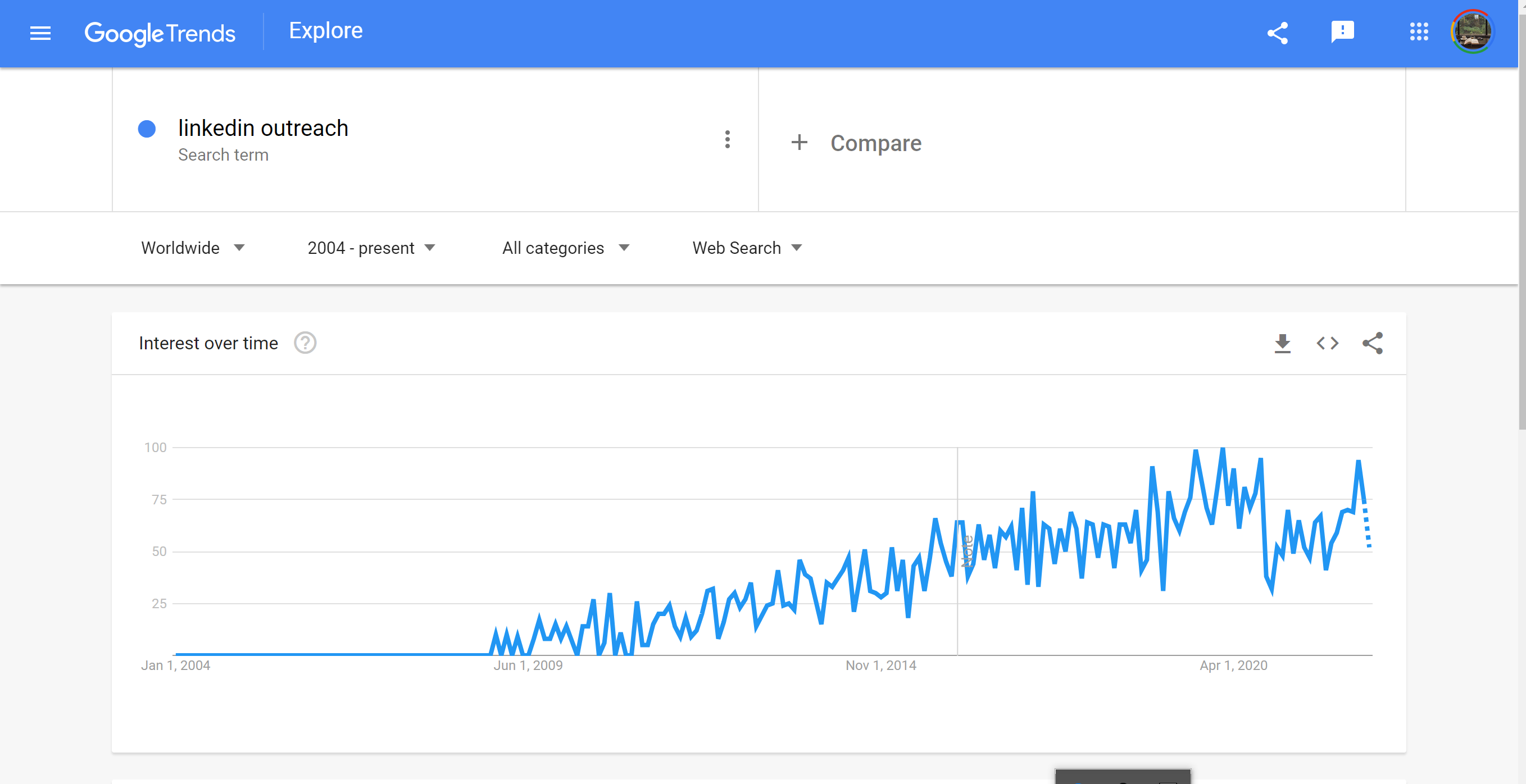
As you can see above, people searching on Google for “Linkedin outreach” has really grown over the years. Below is an image that shows which countries, in particular, are interested in Linkedin outreach.
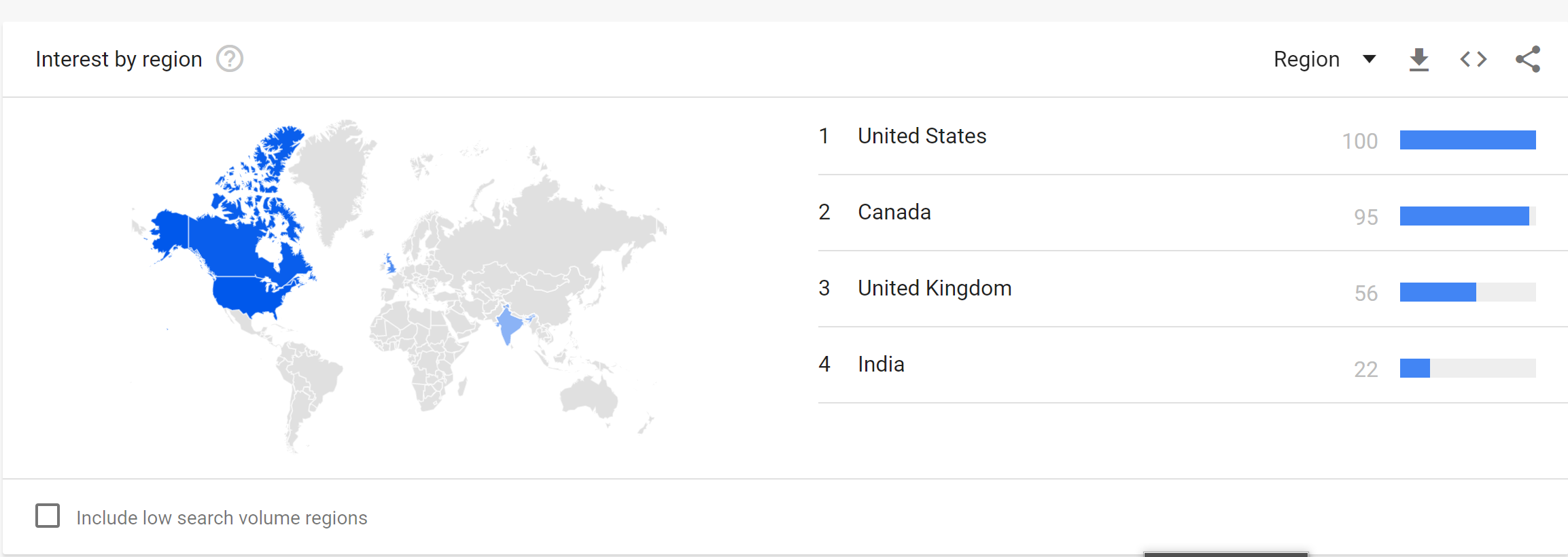
The US and Canada seem to be the most interested in Linkedin lead gen.
But does Linkedin lead generation work?
Have a look at the following stats according to Hubspot and Hootsuite:
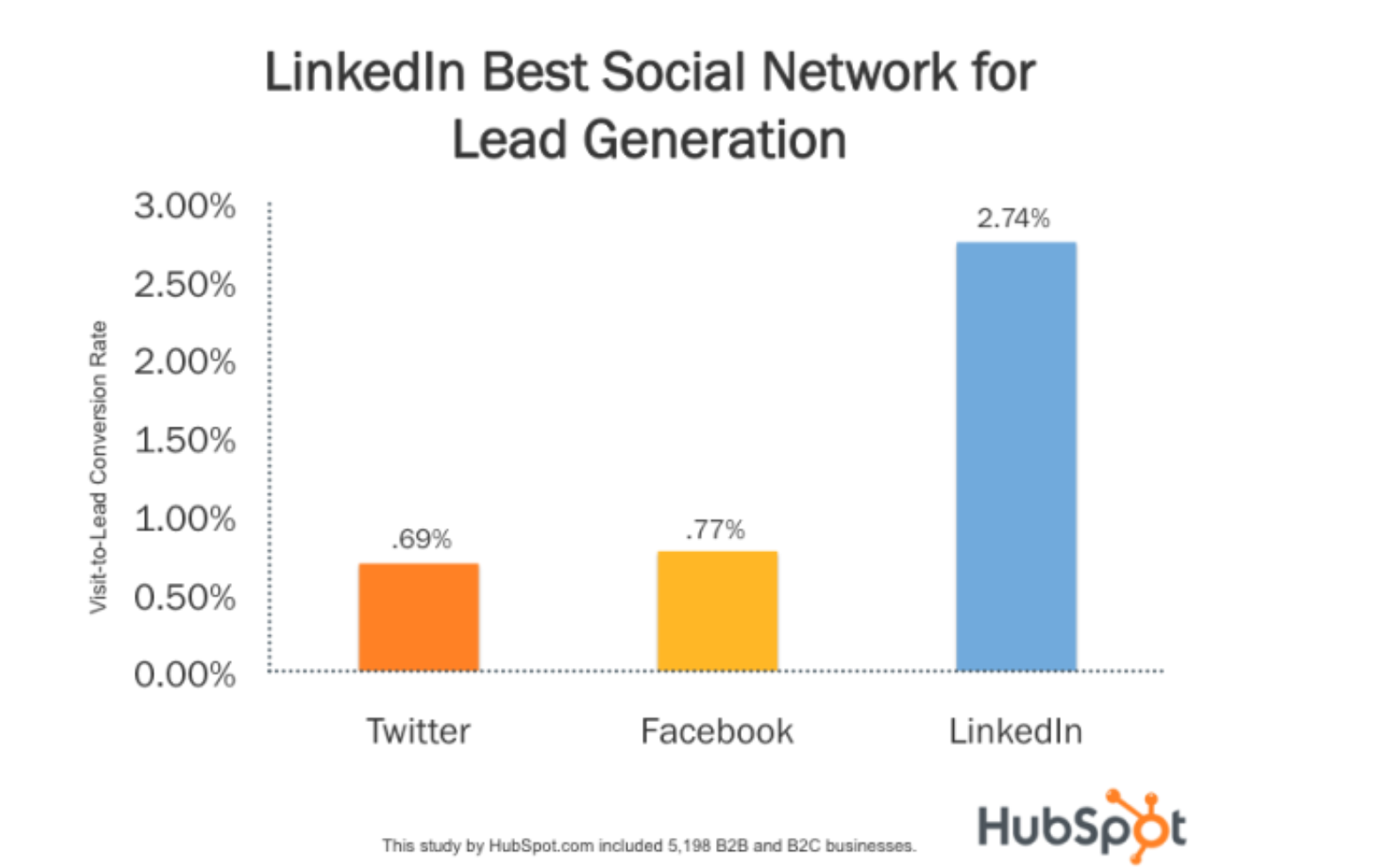

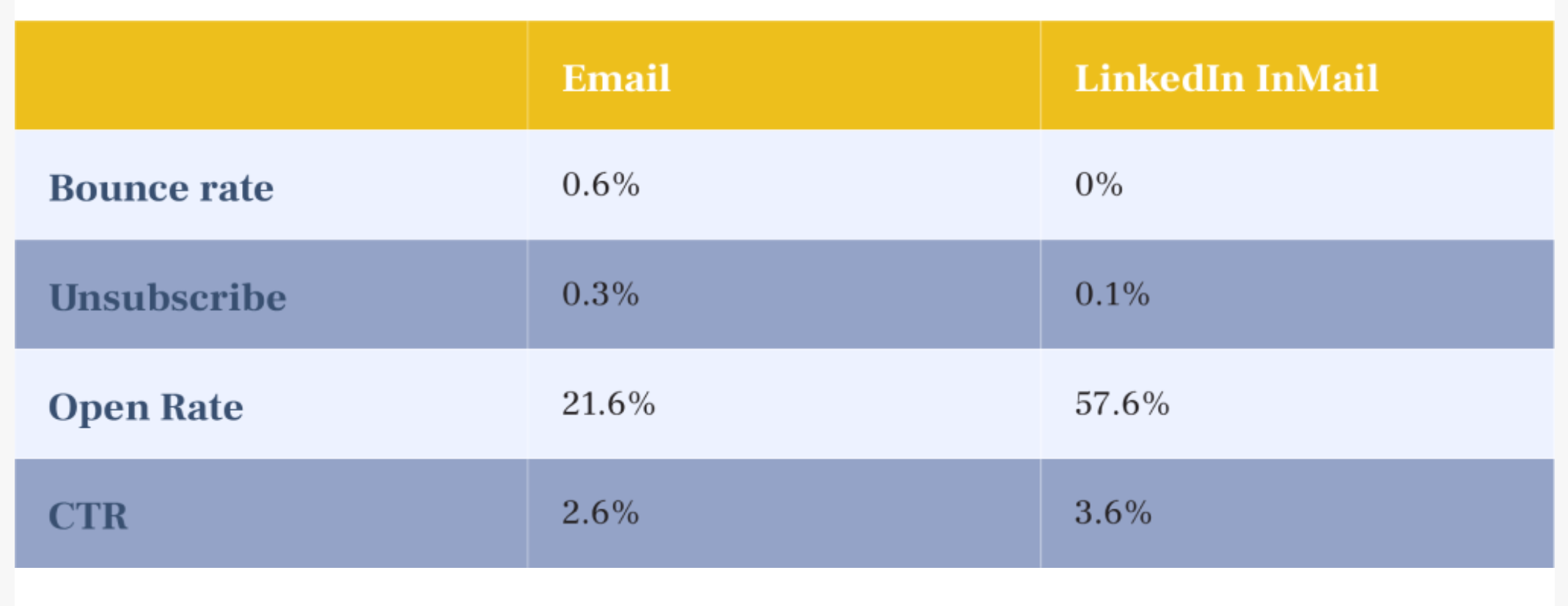
Influencer Marketing Hub also shared some interesting findings regarding Linkedin.
- Linkedin is one of the best platforms to find decision-makers to reach out to.
- 5% of Decision-Makers Use LinkedIn Content to Vet Organizations
- Linkedin is a business-centered social media platform.
So if you haven’t started using Linkedin for your outreach campaigns, you should really try it out. As you can see from the stats above, this is an excellent platform for finding your ideal customer and engaging with them.
This isn’t to say that you shouldn’t use email in your outreach strategy, but Linkedin should be your initial go-to channel when it comes to prospecting. We will explain this in greater detail a little later on in the article. Using a multi-channel outreach approach is always better, but Linkedin should be first and then you can try out other platforms. See the visual infographic below: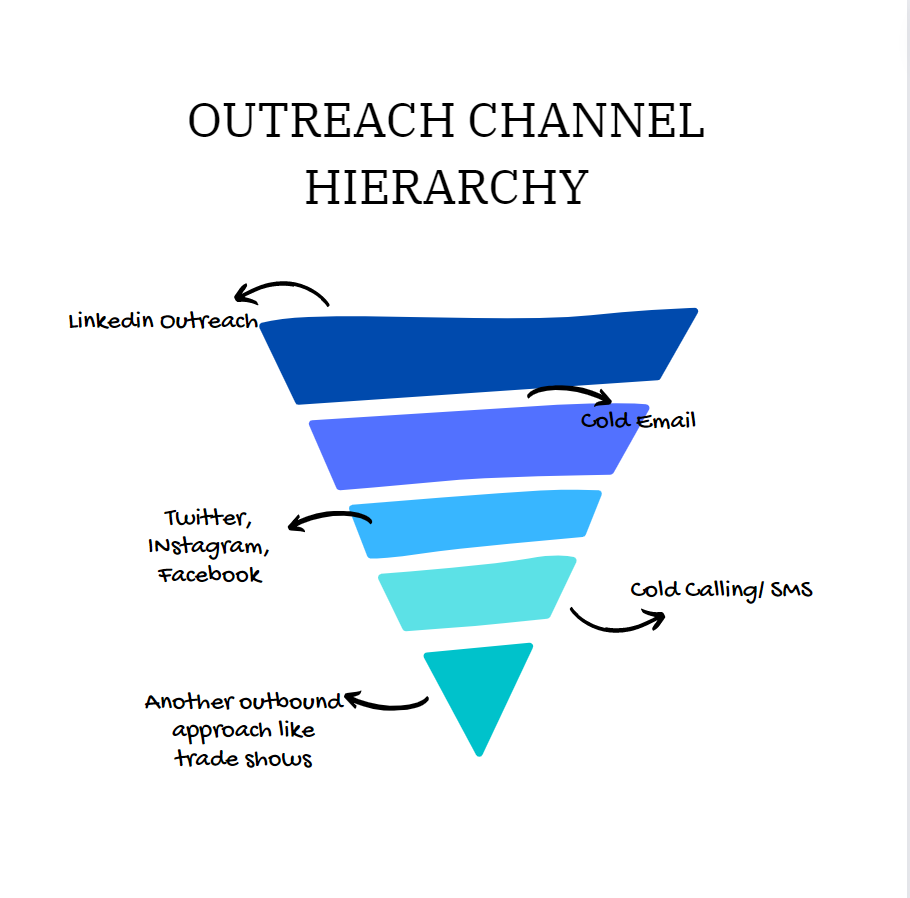
Our Linkedin outreach Stats
Salesbread has been utilizing Linkedin outreach for some time now and we have had excellent results with the platform. We are currently receiving 25-55% reply rates and 40% on average connection request acceptance rates. This is the strongest marketing and outreach channel that we have ever seen. Last year alone we managed to get close to 5000 qualified leads for our clients. (This was a mix of Linkedin and cold email, but the majority of our lead generation strategy was done via Linkedin.) Our average positive response rate is 1 qualified lead per day minimum. This means that our clients are receiving 20+ qualified leads a month in their b2b sales pipeline. All they have to do is get on the sales call and close the deal.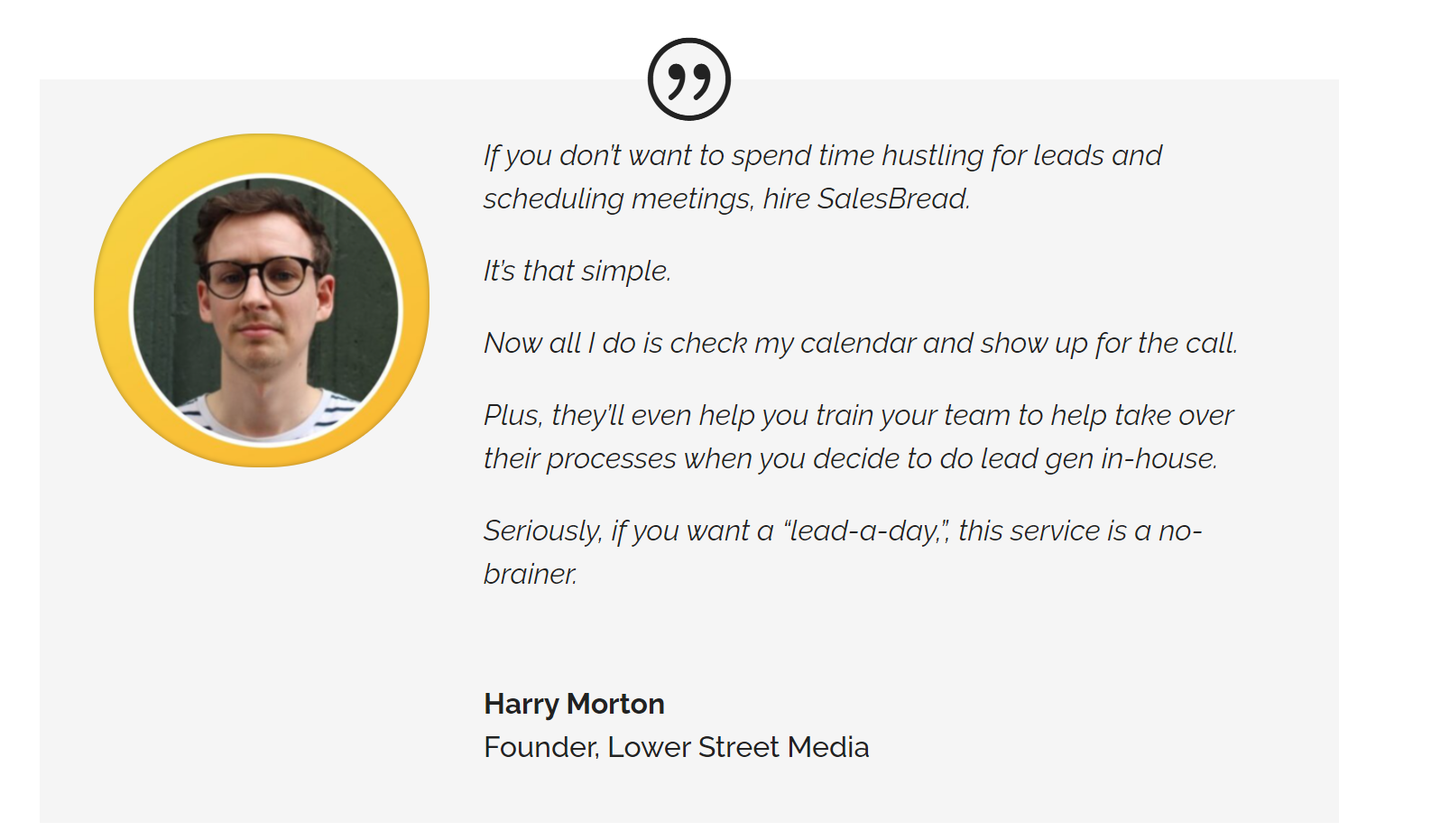
Why does Salesbread have so much success with LinkedIn lead generation?
There are a few reasons for this.1. Personalization
At Salesbread we don’t just send the same Linkedin message via an automation tool. We actually research each prospect on our data-driven list and write a personalized message just for them. Does this take time? Yes. Does it work? Yes, and our stats prove it. When someone sees a message that’s specifically directed to them but has something interesting in it, it piques their curiosity. We use the CCQ method. Here is a video explaining how it works.CCQ basically stands for:
- Commonalities
- Compliments
- Questions
2. We build a data-driven list of prospects
One of the great things about using Linkedin for lead generation is that you can really build an ultra-targeted list of prospects. Yes, there are some glitches when it comes to Sales Navigator and its filtering system, but if you know how to use it correctly, you can build a great list of prospects who need what you’re selling. It’s also important to see WHO has purchased from you within the past 6 months. This allows you to search for patterns between your buyers. For example, if all your buyers are located in a specific area, then you know to target companies in that location. Or if they all use a certain CRM, then you can try to zone in on businesses who use that specific tool. Specific targeting equals success. If your prospect list is too broad, the chances of you reaching out to the right target market are going to be slim. Instead of having a prospect list of thousands of people, rather have a smaller list that is ultra defined and specific. Read this article for more information on how we build an ultra-targeted list: https://salesbread.com/the-best-done-for-you-lead-generation-service/3. We follow up in real-time, not with copy-paste templates
Our sales reps follow up with prospects in real-time. There isn’t an automation tool that sends out the same response, and we don’t use a copy-paste template when replying. By doing so, we really engage with the prospects and are able to answer whatever questions they might have.How does our Linkedin lead generation compare to our cold email outreach?
As mentioned above, our Linkedin lead generation has proven successful. Our cold email outreach still gets great open rates and responses BUT we have found that it is becoming more and more difficult. See the graph below that compares our Linkedin and cold email statsLinkedin Outreach
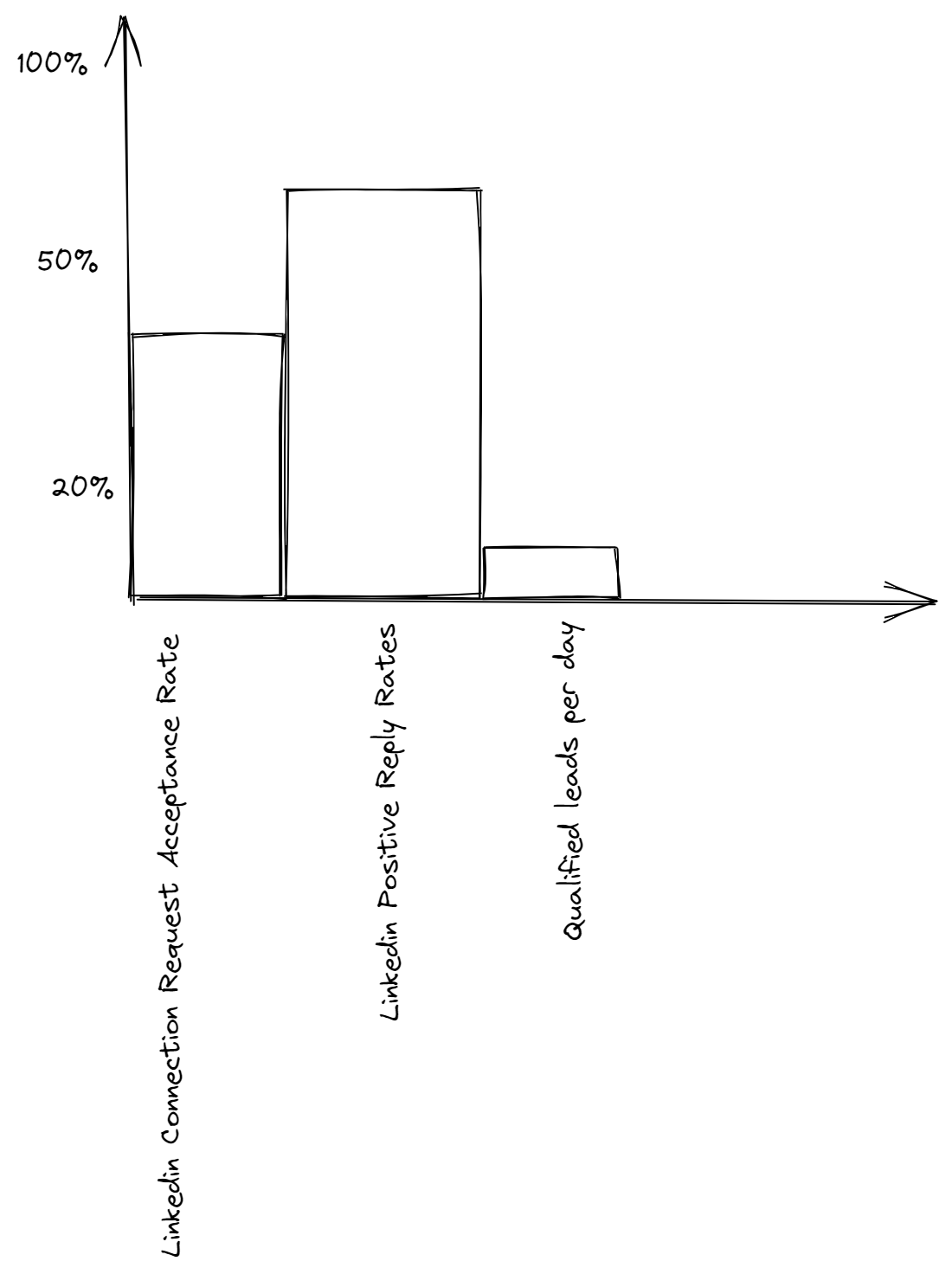
Linkedin has a much higher acceptance and reply rate with an average of 1-2 QUALIFIED leads per day.
Cold Email Outreach
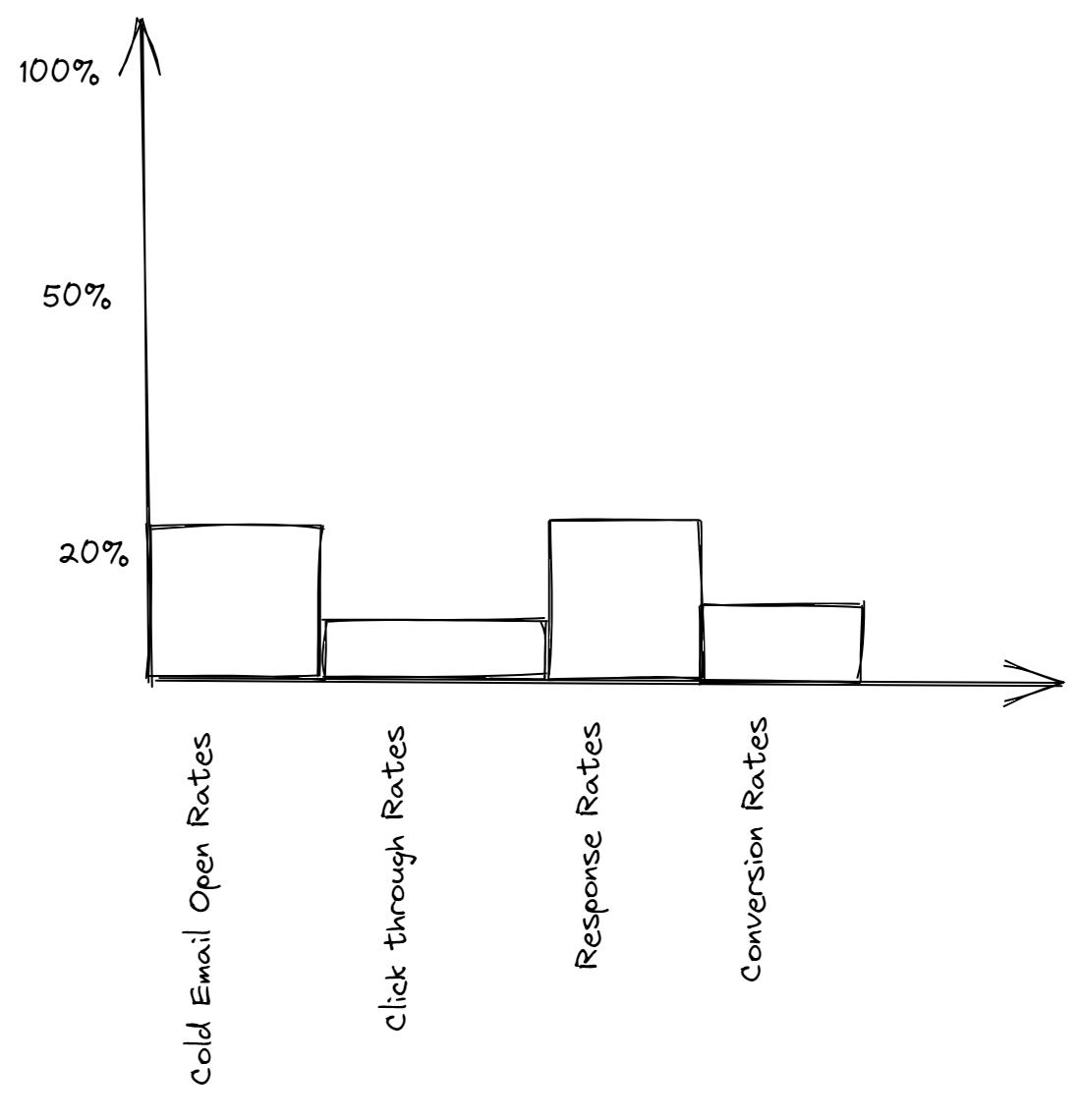
When it comes to cold email, you can see that the open rates are lower than the acceptance rates of Linkedin.
Response rates are also lower, at around 20% on average for most companies. Conversion rates on average are between 10-15% according to recent statistics from various marketers.
Remember though if you are doing outreach correctly, you should be getting higher reply rates.
Anything below 20% is considered not great in the world of cold email.
Here is a podcast on benchmark stats for cold email
Pros and cons of Linkedin outreach
Pros
Number 1.
Unlike cold email, Linkedin allows you to see which users are active on the channel and thus more likely to accept your invitation and engage with you. Statistics show that people who are in your second-degree network are 5 times more likely to book a call with you. You can’t see this with email campaigns, unfortunately. You don’t know how active a prospect is with their email account. Linkedin allows you to prioritize prospects to ensure that your campaigns are more effective.Number 2.
Linkedin provides a lot of context that cold email doesn’t. This means that it’s very quick to see your entire resume within that chatbox. A person’s Linkedin profile can’t really be spoofed or faked. It’s like having a cold email signature that’s extremely in-depth; you can see a prospect’s work history, their bio, their interests, and vice versa, prospects can see everything about you. This means that you have more credibility when you reach out to prospects via the Linkedin platform.Number 3.
Linkedin is a lot harder to automate. Everyone knows that many emails are automated today, and this is why personalized emails are so important for your campaign to be successful. But with Linkedin, it’s harder to automate your messages. But most importantly with Linkedin, you can just set up a fake profile and start spamming people from that. You actually have to use your own account if you want success. You have to engage with prospects, it’s important to have an established network, and having recommendations help your success rate. With Linkedin, you need to look legitimate. Whereas with cold email, it’s easy to set up a fake account and spam thousands of prospects. Linkedin outreach has to be done via an official account, usually from the VP or the senior officials’ account at a company. It is a trustworthy platform and we have found prospects are happier to engage through Linkedin.Number 4.
Linkedin was created to network. People create Linkedin accounts because they want to engage with others who will help their careers. It was a platform built for networking and business. So on Linkedin, unlike email, you’re actually looking to meet people. So the attitude of people when they check Linkedin is, “who’s going to help me with my career.” When your sales team asks for a meeting to discuss the prosects career, company, and their objectives, people are more likely to accept because this is why they logged into Linkedin in the first place. They are more open to taking calls with people on Linkedin to advance their careers.Number 5
There are no spam filters that you need to get through on Linkedin. Today, it’s very challenging to get 60% open rates on cold email. (This doesn’t mean that you can’t, you absolutely can; but you need the perfect targeted list, excellent copy, and a great strategy.) With Linkedin, you still have to do all the above, but you don’t have to worry about doing all of the right things and then getting your email hit by a spam wall. And the best part, with Linkedin deliverability, is perfect once you get someone to accept your invite.Number 6
Linkedin sends prospects a few messages to remind them that they have a new message. If the prospect has the Linkedin app on their phone, they will get a message there; They will also get an email notification that mentions they have a new message and in some cases, they might even get sent a reminder that a new message is waiting for them. This then makes it very hard for the prospect to just ignore your Linkedin outreach messages. And because of this, we are seeing between 20%-50% reply rates.Cons of Linkedin outreach
Number 1
If you don’t know how to build an expert list or write personalized messages, you are going to struggle to get your connection requests and your messages accepted. This is why it’s important to develop an outbound strategy beforehand, in order to have success. Salesbread offers a free 15-minute consultation call if you would like some advice on how to run your Linkedin outreach campaigns.Number 2
If you don’t know how to use Linkedin Sales navigator search filters the right way, you might also end up reaching out to the wrong prospects. Here is an article explaining some Sales Nav hacks: https://salesbread.com/sales-navigator-search-filters/ and https://salesbread.com/linkedin–sales-navigator-search-tips/Cold Email Outreach stats from the web
Now that we have established that Linkedin can be a profitable outreach platform if used correctly, we can discuss cold emails. Here are some stats from the web on cold email outreach.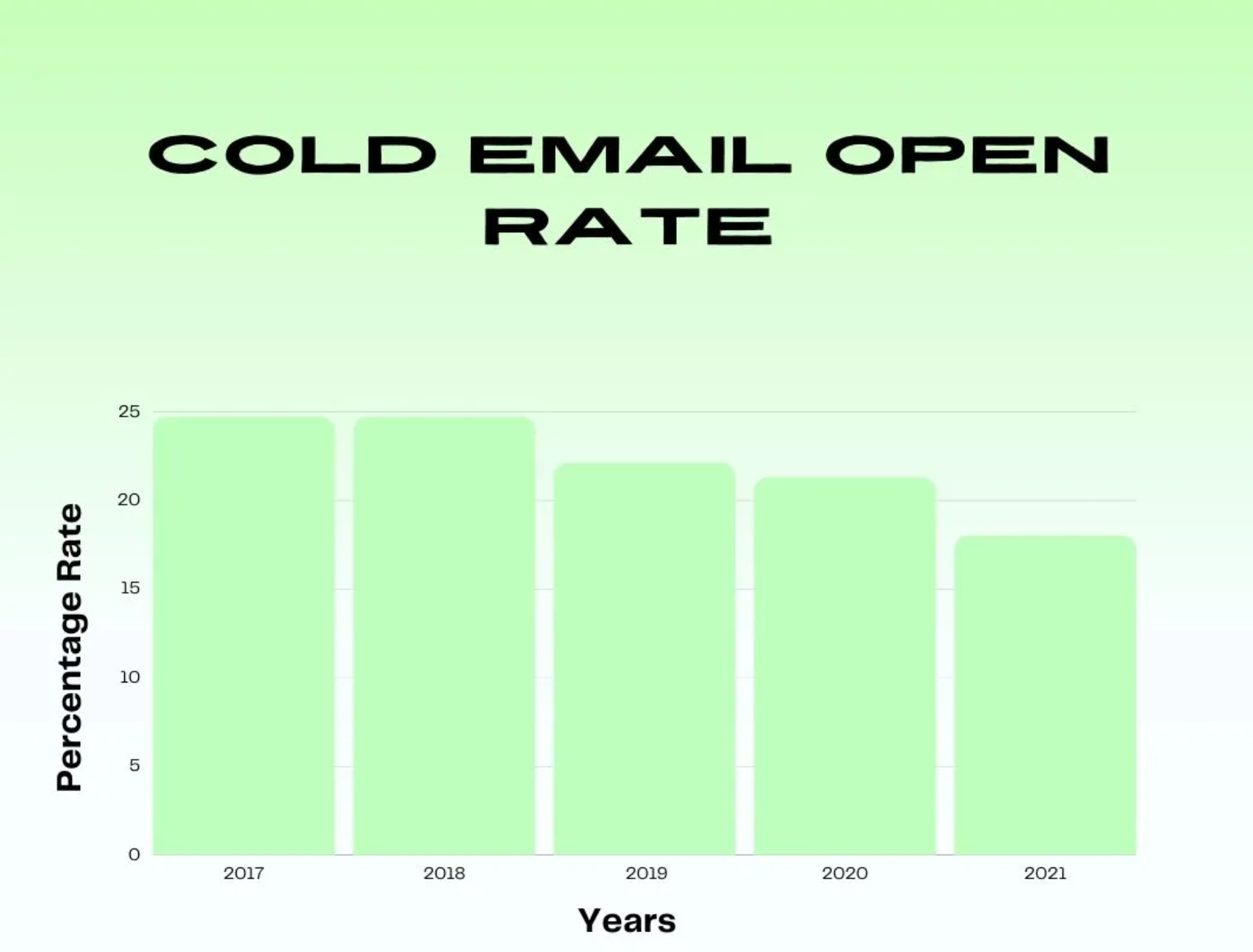
As you can see, cold email open rates have definitely decreased over the past few years. As of 2021, you can expect an open rate of about 15%.
Another stat according to WriteCream shows that:
The average ROI for 2021 is $38 for every $1 invested or 3,800%.
- Top performers: 18% of businesses achieve ROI of more than $70 per $1 invested.
- Low performers: 20% of businesses achieve ROI less than $5 per $1 invested.
- Segmented emails: Generated 36% of the total revenue of cold emailing
- Triggered campaigns: Generated 306% more CTR per Email than non-triggered emails.
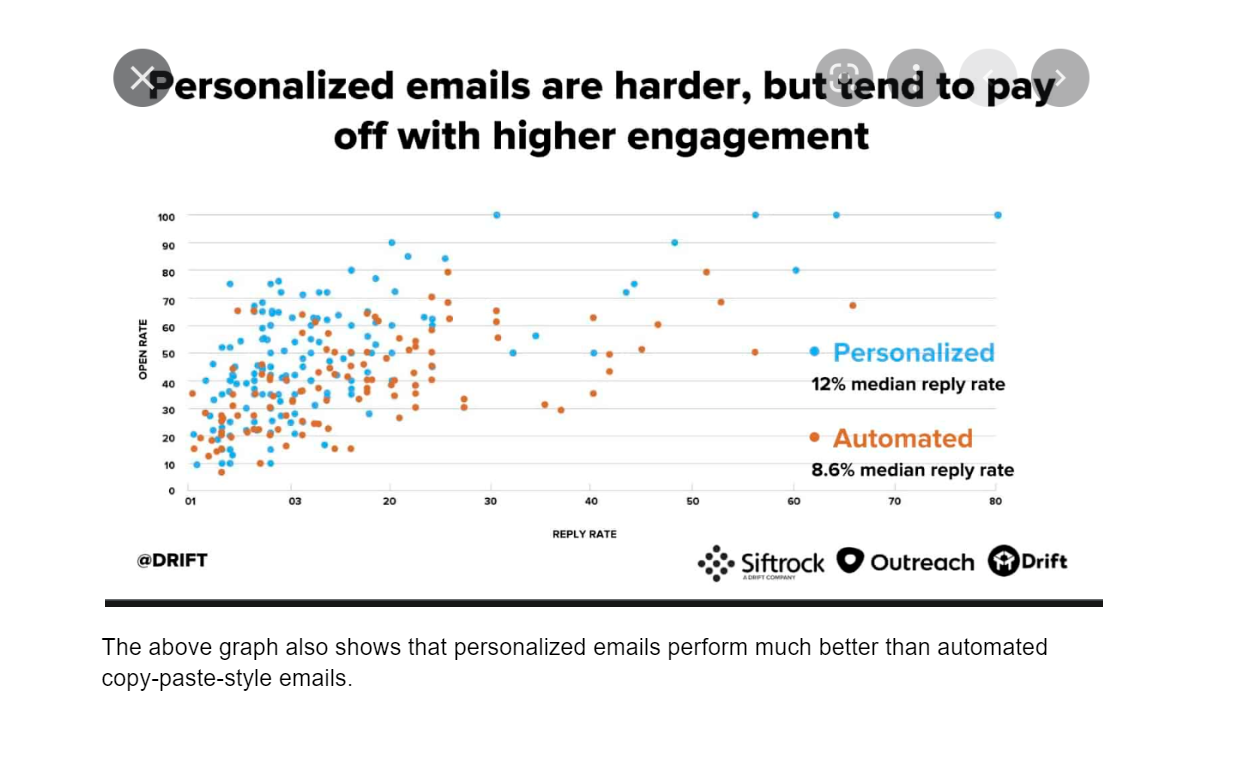
The above graph also shows that personalized emails perform much better than automated copy-paste-style emails.
Our Cold email outreach stats
Even though we like using Linkedin first in our outreach, it doesn’t mean that cold email isn’t successful. It’s just slightly harder in 2022. But we are still receiving good results. This article https://salesbread.com/lead-generation-expert/ discusses two recent cold email campaigns that we ran and these were the stats that we received: Below are the stats for our first campaign in this case study: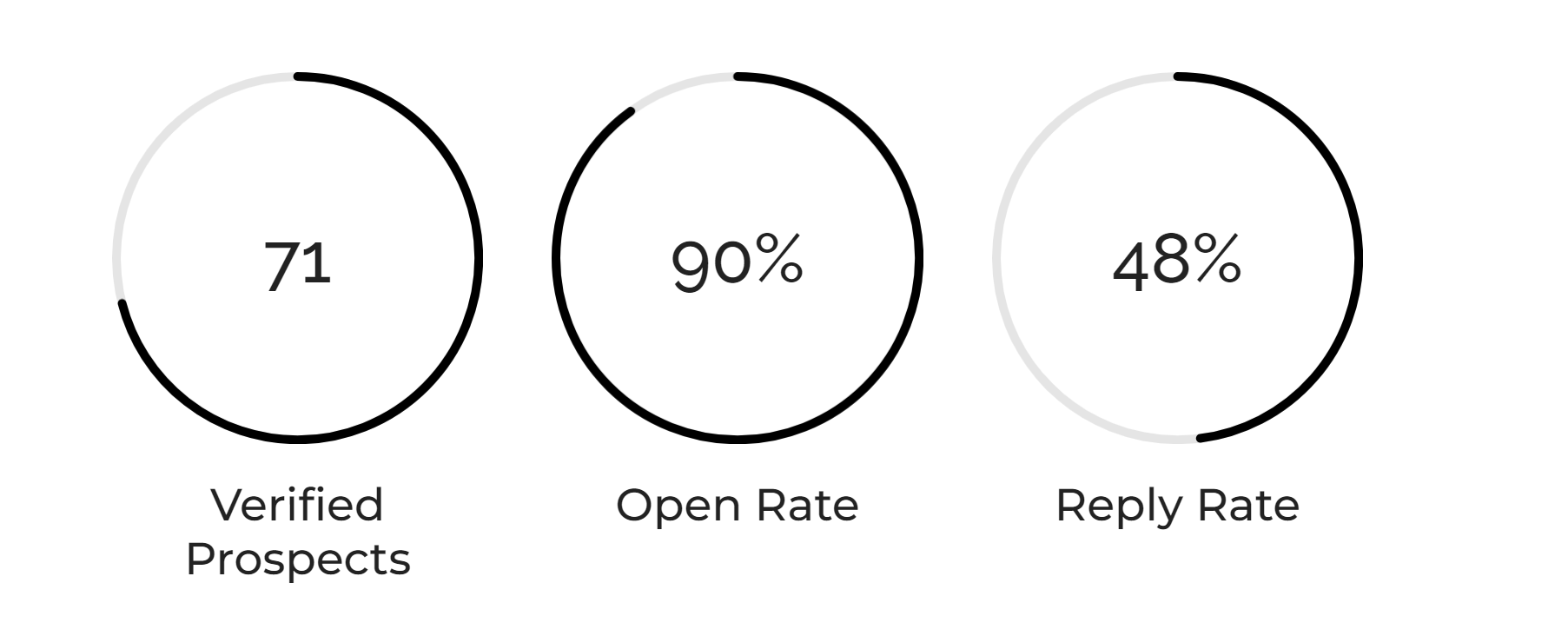
These were the email messages that were sent out in this order:
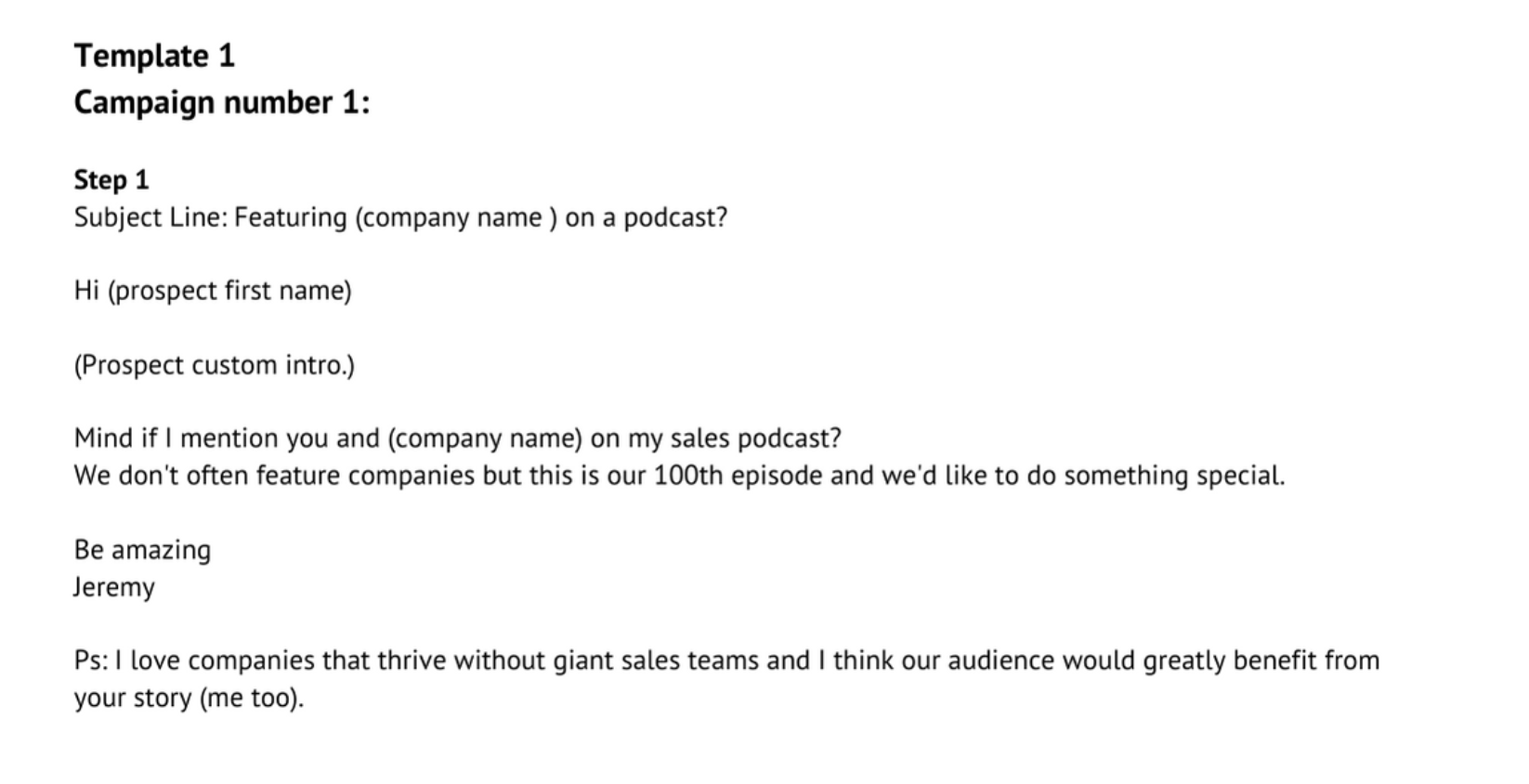

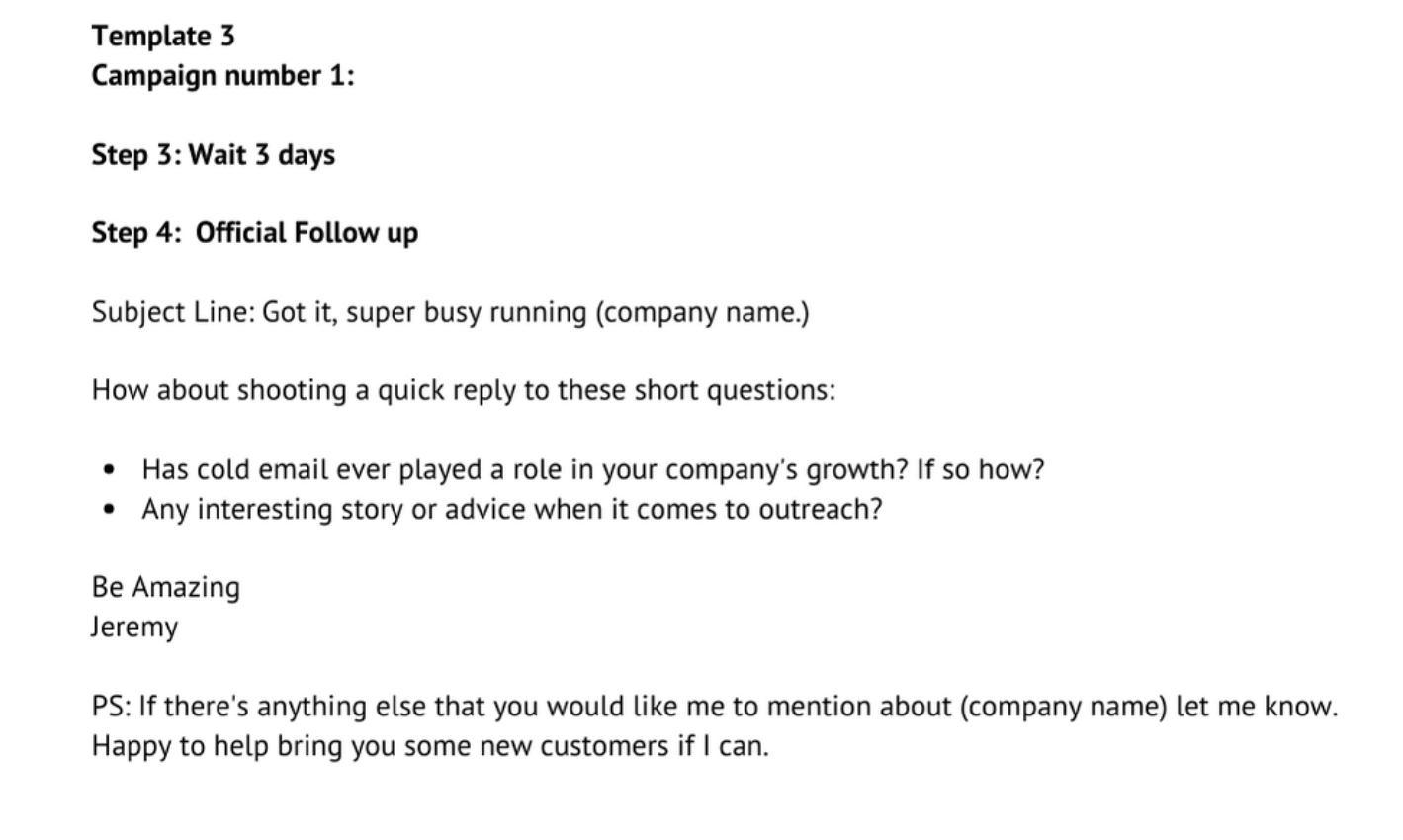
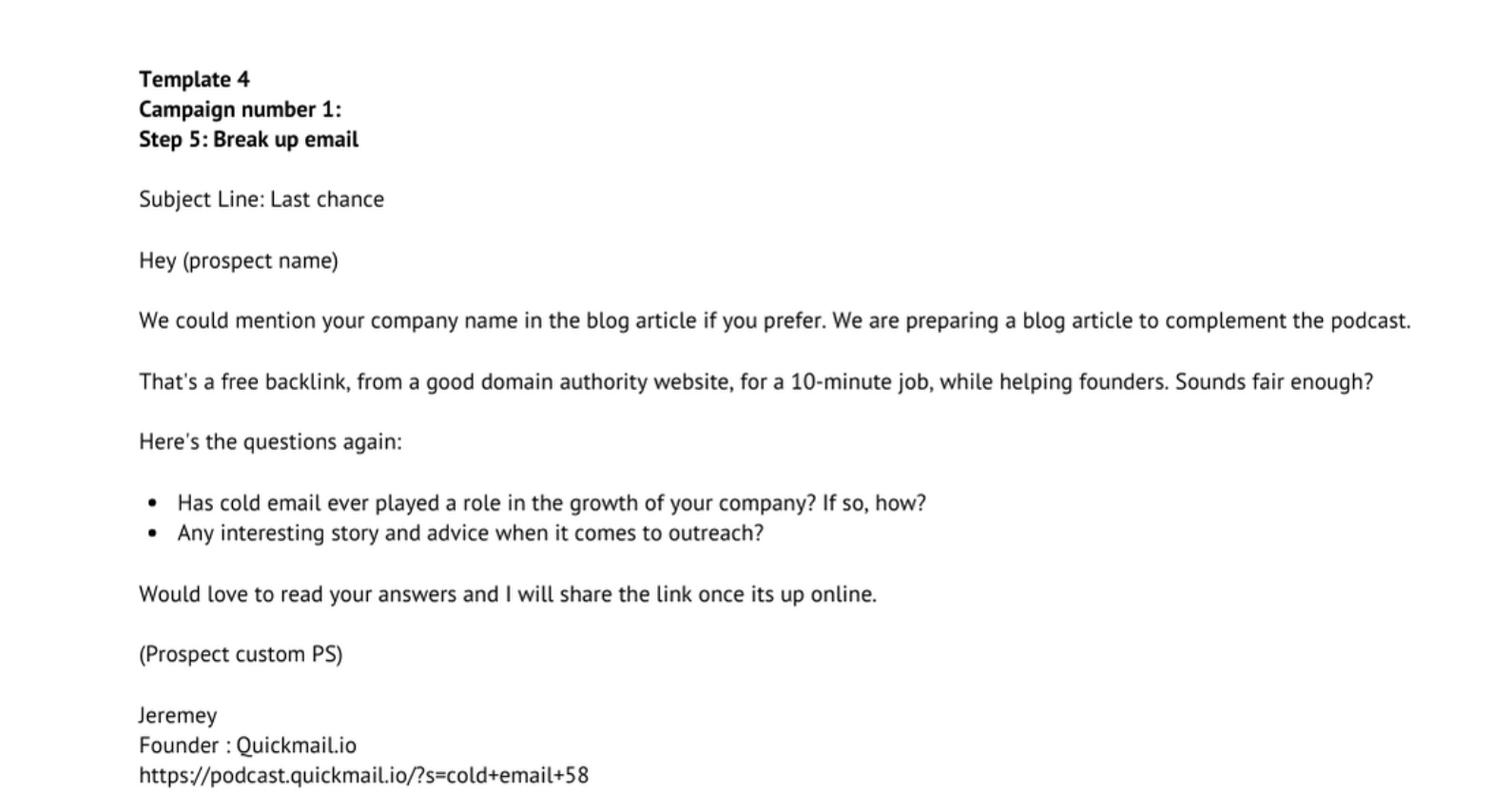
What was the reason for our success with this email campaign? We used personalization, we didn’t spam prospects, we used just the right amount of email cadence, and most importantly our value proposition was a no-brainer.
This tells us that cold emails can be successful, but it takes a bit more effort, and you really need an excellent value prop if you want prospects to reply.
The second cold email campaign performed less impressively and here is why:
Our CTA wasn’t as clear as the first and our follow-up emails might also have been a little too tight, forcing people to respond or not get featured.
It also lacked personalization. This proves that personalization is vital, as it costs us 4x the response rate.
Relevant content is also significant because people will not be interested in something that is not relevant to them.
(This might have been one of the biggest problems with the second campaign because we were unsure who we were reaching out to exactly.)
BUT interestingly, we got a response from our second campaign from someone who was super keen to be featured on the podcast, and their interview was mind-blowing.
That’s the thing, you might have a lower response rate in one campaign, but those who responded might be the right person for your product/service.
The best way to measure good success is to look at the metrics holistically and see which campaign actually got you that one qualified lead.
Here were the stats for campaign 2
